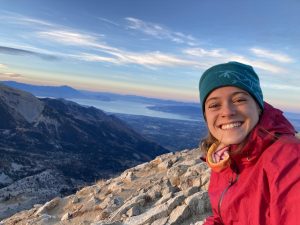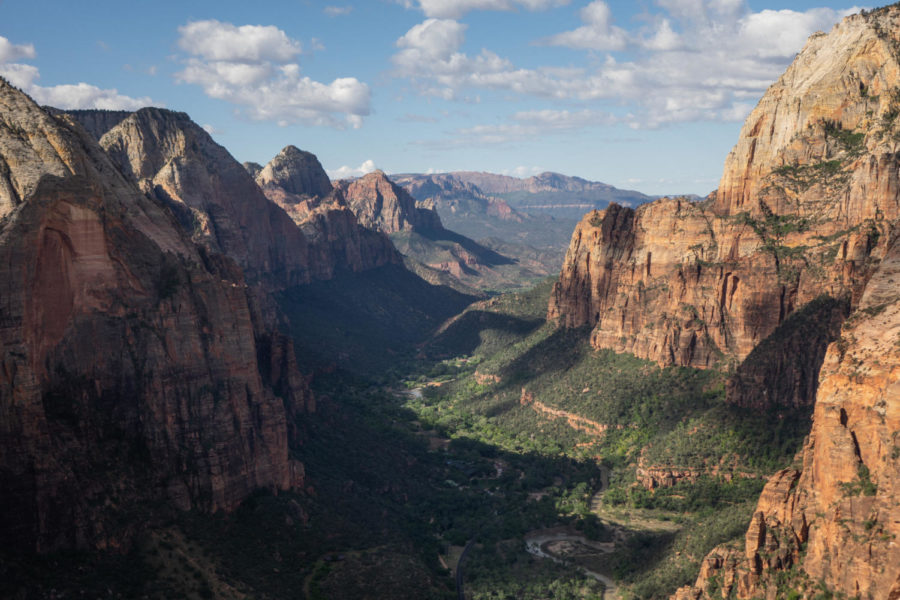Opinion: Elitism and Privilege in the Outdoors
As an outdoor-lover from the flatlands of Chicago, I strive to empower other people who show immediate interest in the outdoors, while still focusing on improving my own outdoor skills and attempting to be environmentally-conscious. In juggling these goals of encouraging others, diversifying my own skill palette and respecting the environment, I often run into “or” statements. I can drive hours away to go on a personal trip or I can stay in Salt Lake City to avoid using gas. I can spend time teaching other people how to canyoneer or I can focus on becoming a safer outdoorswoman. I can push as many people as possible to get outside or I can try to preserve my favorite outdoor locations by only talking about them to those who I am close to. Self-prioritization is often necessary to a certain extent. In being a reliable adventurer, I can confidently expand other people’s outdoor outlets. However, self-awareness and development should not become elitism. Keeping secrets about where I have been or plan on going unless I am trying to protect my own safety, makes me a gatekeeper.
I have rappelled through empty canyons, summited deserted peaks and biked on unpopulated trails. Every time my companions and I find ourselves alone in the backcountry, I feel an overwhelming sense of gratitude, which is then plagued by fear when I think about what such desolate spaces might look like in 20 years.
Although I believe my feelings are valid, they stem from privilege. In the end, the only way environmental activists will be able to save our public lands is if these lands are truly advertised as public. This is problematic, since many of the lands non-indigenous outdoors-people tread on originally belonged to indigenous communities, but if people from a higher socioeconomic status can go outside, there should be a push for everyone to go outside.
It is challenging to find spare time to tackle the root of such outdoor-related issues while pursuing a college degree. I cannot change the fact that access to most outdoor activities is limited due to high vehicle, gas, and gear prices. However, there are small actions everyone can take to avoid feeding into the cycle of outdoor inequality. These four steps may serve as starting points of a longer discourse.
Question Your Social Media Use
Ask yourself why you post certain things on social media. If you choose to post a photo of a remote location but opt out of geotagging, you should ask yourself why you are posting the photo in the first place. Geotagging is controversial, as it does not align with Leave No Trace principles and provides viewers with data that can potentially lead them to abuse the tagged location. I am not suggesting that anyone provide the exact coordinates of where they are recreating. However, if someone posts an image on Instagram with a caption conveying how paradisiacal their adventure was, but fails to disclose where they traveled to, they are likely doing so to show off. This perpetuates outdoor exclusivity.
Really Care About the Environment
Be consistent in your goals of minimizing your environmental impact. Claiming to support outdoor secrecy for environmental purposes, then contributing to environmental damage by other means, is hypocritical. Recognize that in reaching certain locations, you are directly contributing to climate change through car pollution.
Stay Humble
Acknowledge your privilege. You may get to ski three days per week during ski season and go on biweekly trips to the desert during the warmer months, but understand that few people have such opportunities.
Reach Out
Has going outside ever made you aware of the dire state our planet is in? Realize that people without access to the outdoors may never have such tangible experiences with nature and the abuse it faces. It is true that sometimes people flock to outdoor locations and are not environmentally conscious, but if you extend your support to others, more people will have the chance to be skilled outdoors people and not just tourists. Ask someone if they want to hike, bike, or climb with you.
I am one of the many people guilty of buying into outdoor elitism. The first step in breaking the flawed outdoor culture is to recognize how your actions impact other people. In acknowledging elitist mentalities, we have a better chance of transforming “or” statements into “and” statements and to consider both environmental and social justice issues.


